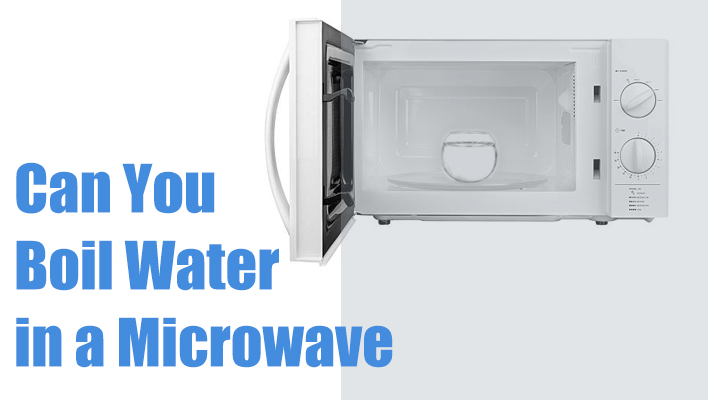Microwave ovens are a staple in the kitchen for many households, offering an extremely convenient and fast way to heat food. But be cautious! There are certain things that just won’t turn out nice in the microwave.
For example, many believe that boiling water in a microwave can lead to superheating water and make it explode. Is there any truth to that?
Can you boil water by microwaving it? Is it really safe to boil water in a microwave? What happens when you boil water in the microwave?
We will answer all those questions in today’s blog post. Read on!
Can You Boil Water in a Microwave?
Wouldn’t you agree that it would be rather convenient if we can just boil water in the microwave for tea or for formula?
However, it is not 100 percent safe to boil water in the microwave. If not careful, it could end up as superheating water which is extremely dangerous.
What happens if the water we try to boil in the microwave ends up as superheated water?
When you try to boil water in the microwave, you might find that the water could remain stable after microwaving. Even if you repeat the microwaving process, nothing really seems to change – no boiling, no steam and no bubble.
However, if you retrieve the water from the microwave, you will find that the water is scorching hot. And then, the seemingly calm water could suddenly start to boil and erupt when something touches the surface or the moment the container shakes.
This is what we called superheated water. And this happens frequently when someone tries to boil water in the microwave.
What Is Superheated Water?
Above, we have explained that superheated water often occurs when we try to boil water in the microwave.
But what is superheated water? Why would it happen when we want to boil water by microwaving it?
Superheated water is a phenomenon in which water is heated over its boiling point, but it is not actually boiling.
The water gets to a scorching high temperature without any nucleation sites (tiny bubbles or impurities) for the vapour to form. Thus, the boiling is not happening.
That’s why when you heat water in a smooth container and have it heated at sudden high heat, the phenomenon of superheated water is likely to occur.
Why Superheating Happens in a Microwave?
There are two major reasons why superheating frequently happens when we boil water in the microwave.
The first reason lies in that we usually use smooth containers to boil water in the microwave, like a microwave-safe glass or ceramic mug. The smooth surface of the container prevents the formation of nucleation sites, which are necessary for bubbles to form and the water to boil.
Another major reason would be that the temperature increases intensely without convection when water is heated in the microwave.
Imagine this, when we boil water with a kettle, it heats the water from the bottom and bubbles would form and the bubble would move upward within the water, right? This movement of bubbles causes convection within the water, thus it prevents superheating.
However, when we boil water in the microwave, the water does not undergo convection during the heating process. No circulating flow inside and no bubble would form.
To make it worse, due to the high power of microwaves, the heating process is very rapid, making the whole heating process so unstable. The more unstable the entire water system becomes, and superheating may even occur.
Does It Mean No Water Should Be Microwaved?
Since it is super dangerous to boil water in the microwave, it would make us wonder if we could microwave liquids at all. Is it even safe to microwave tea, soup and beverages?
For superheating to occur in a microwave, the liquid has to be sufficiently pure. That’s why it is not likely to cause superheating since they are not as pure as water.
Remember: Superheating could happen to all kinds of liquids, just more likely to water and less likely to others. Always let heated liquids sit in the microwave and let it cool down a bit before you retrieve them.
How to Avoid Superheating Water in a Microwave?
At this point, we can agree that superheated water is extremely dangerous as it could violently boil after microwaving and cause severe burns.
If you still want to boil water in a microwave for tea, given that it would be the easiest way to boil water, here are some tips for you to avoid superheating.
1. Avoid Smooth Surface.
If you need to boil water in a microwave, you will want to use a textured container for the water. Avoid mugs and glass, and opt for microwave-safe containers with textured finish or with small imperfections or bubbles inside.
2. Help to Form More Bubbles.
Place an utensil or a spoon in the water so there are more surfaces for bubbles to form. And thus creating convection within the water.
3. Stir Between Intervals.
Instead of having the water heated all along till it boils, you can stir the water with a fork or spoon between intervals. This could introduce air bubbles and disrupt the smooth surface of the container.
Please Be Noted: Even with these precautions, superheating can still happen when you boil water in the microwave. It’s recommended to boil water in a kettle or on the stove. Also, you should always let it sit for a while before you make contact with it.

